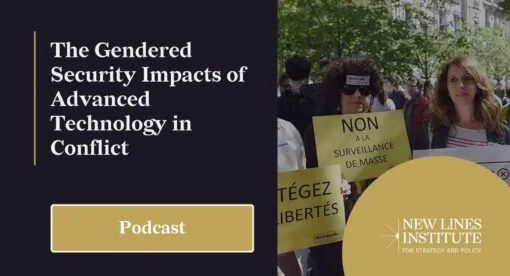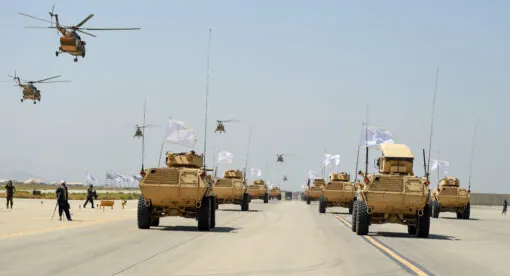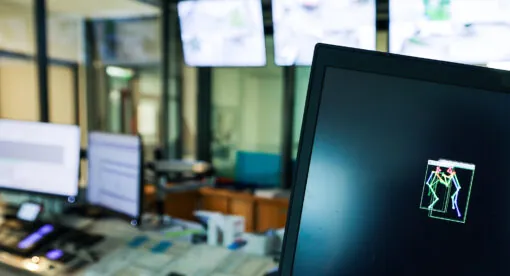Foreword by Amb. David Scheffer, former U.S. Ambassador-at-Large for War Crimes (1997-2001).
On May 23, 2020, the world should learn whether Myanmar not only is complying with an international order but whether it has done so truthfully and without deception or obfuscation. The first report by Myanmar required under the Order for Provisional Measures by the International Court of Justice in The Gambia v. Myanmar — a case concerning allegations that Myanmar has violated the 1948 Convention on the Prevention and Punishment of the Crime of Genocide in its treatment of the Rohingya minority group — will test the credibility of the government’s conduct since the Order was issued on Jan. 23. Hundreds of thousands of Rohingya men, women, and children have been forcibly routed, amidst significant killings, violence, and destruction of property, across the border into Bangladesh where most continue to live as refugees. The anticipated report will provide an important milestone in helping the ICJ determine whether genocidal acts have been prevented and evidence of alleged acts of genocide preserved under pressure of the Court’s Order or whether the government’s report reveals an intention by political and military officials to continue business as usual while claiming it falls outside the ambit of genocide.
The following analysis provides an informative summary of the significance of the Order for Provisional Measures, which mandates rigorous performance tasks that Myanmar must, as legal obligations, undertake at least until the ICJ reaches the merits of the case. It then sets forth what might be expected of Myanmar authorities in how they craft their first report to avoid any responsibility under the Genocide Convention for breaches of the Convention that The Gambia claims have occurred and may still be happening in the Rohingyas’ homeland of Rakhine State from where they were forced to flee. These are reasonable assumptions given the statements and positions of Myanmar to date, and it is worth calling out the government in advance so that this predictive thinking can be tested against what is actually reported and then evaluated by the ICJ judges.
No Place for Optimism: Anticipating Myanmar’s First Report to the International Court of Justice
On Jan. 23, the International Court of Justice (ICJ) delivered its Order for provisional measures in the case concerning the Application of the Convention on the Prevention and Punishment of the Crime of Genocide (The Gambia v. Myanmar). While we expect Myanmar to provide a response to the ICJ within the stipulated time frame, we do not expect their response to factually represent on-the-ground occurrences. This paper will address each of the reporting orders presented in the ICJ ruling and expert analysis of the expectation surrounding Myanmar’s response.
Background on The Gambia’s Case and the International Court of Justice
The Gambia filed the application on Nov. 11, 2019, instituting proceedings against Myanmar concerning alleged violations of the Genocide Convention. The Gambia argued that Myanmar has committed and continues to commit genocidal acts against members of the Rohingya group, which The Gambia described as a “distinct ethnic, racial and religious group that resides primarily in Myanmar’s Rakhine State.” The application contained a request for the indication of provisional measures, seeking to preserve, pending the Court’s final decision in the case, the rights of the Rohingya group in Myanmar, its members, and The Gambia under the Genocide Convention.
Following written submissions and three days of oral arguments at the Peace Palace in The Hague in December 2019, the Court ordered, unanimously, four provisional measures, each of which placed binding legal obligations on Myanmar. The first two provisional measures are de facto restatements of state obligations under the Genocide Convention. They underline the seriousness with which the Court is taking the allegations but impose no new legal obligations on Myanmar.
The third measure requires Myanmar to take effective steps to prevent the destruction and ensure the preservation of evidence related to alleged genocidal acts. This measure reflects allegations that Myanmar has deliberately destroyed evidence[1] and denied independent access to Rakhine. It also signals the potentially essential monitoring role of activists and civil society.
The fourth and final measure imposes an obligation on Myanmar to make periodic reports on its implementation of the measures. The reporting requirements, which The Gambia may comment upon, represent the Court’s decision to proactively monitor compliance. This is likely a legacy of the last ICJ case in which breaches of the Genocide Convention were alleged – that of Bosnia and Herzegovina v. Serbia and Montenegro, where provisional orders issued in April and September 1993 failed to prevent the Srebrenica genocide in July 1995.
Myanmar is due to file its first report to the Court on May 23, in which it is expected and obliged to set out the measures it is taking to comply with the Court’s Order. Myanmar’s report will be provided to The Gambia, which will then have the opportunity to submit comments to the Court.[2]
The Significance of the Order Indicating Provisional Measures
While a decision on The Gambia’s request for provisional measures is not a decision on the merits of the application, having the Court unanimously agree on these four provisional measures is a significant achievement. It has put Myanmar on notice that its version of its treatment of the Rohingya and the conduct of its armed forces in Rakhine state is not going to be accepted without question.
Although standing does not have to be established definitively at the provisional measures stage, the Order affirmed at paragraph 41 that The Gambia, as a state party to the Genocide Convention, has standing to institute proceedings. This is despite the state not having been “specially affected.”[3] The Court also held, in paragraphs 52 and 53 of its Order, that “the Rohingya appear to constitute a protected group within the meaning of Article II of the Genocide Convention.”[4] This tentative finding brought renewed attention to Myanmar’s unwavering refusal to use the word “Rohingya” in its oral and written arguments, or indeed in the Executive Summary of Myanmar’s International Commission of Enquiry (ICOE), which was published three days prior to the issuance of the Court’s Order. Myanmar’s attempted erasure of the Rohingya in the courtroom was implicitly pushed back in the wording of the Court Order. Non-compliance can, theoretically, give rise to an instance of state responsibility and a cause of action.
What to Anticipate in Myanmar’s First Report
Assuming that Myanmar does comply with the fourth provisional measure and files its report on May 23, what might we expect from this first report?
In light of Myanmar’s conduct to date, any expectation of genuine compliance with the measures would be naive. Rather it is anticipated that Myanmar will use its first report to continue to advance its self-serving narrative and reinforce the central planks of its responding case. It is expected that:
Myanmar will continue to assert that no genocide is taking place.
Shortly after the ICJ’s decision was announced, Myanmar’s Ministry of Foreign Affairs issued a press statement maintaining that “there has been no genocide in Rakhine.” The statement noted that the Court’s Order was not a decision on the merits, and referred to the ICOE’s report (of which only the Executive Summary and select annexes have been released), stating that the ICOE “found that war crimes had occurred, and those are now being investigated and prosecuted by Myanmar’s national criminal justice system.” The statement also implied that the Court’s motivation in ordering the provisional measures against Myanmar was to avoid criticism and “… protect the Court against possible accusations of failure [to] take preventive action at the start of a case.”
Myanmar will defend its continuing military operations as legitimate and conducted in accordance with international law.
In the four months that have elapsed since the Order was handed down, Myanmar’s armed forces, the Tatmadaw, have intensified attacks on areas populated by ethnic minorities, including in Rakhine and Chin states. This includes, but is not limited to, attacks on the Rohingya. According to a report by Al Jazeera, the Arakan Information Center,a Malaysia-based organisation that has been monitoring the conflict, documented 121 civilian deaths in the first four and a half months of 2020, including 45 in the first half of April alone. On April 1, the U.S. State Department expressed deep concern regarding “escalating violence in northern Rakhine State and Chin State, where dozens have been killed and thousands have been displaced in recent months.” On Ap ril 29, the outgoing U.N. Special Rapporteur on the situation of human rights in Myanmar called for an investigation into allegations of ongoing war crimes and crimes against humanity in Myanmar’s Rakhine and Chin states.
Myanmar will continue to position these attacks as legitimate military operations and will take care to emphasise its right to defend itself militarily. It is likely that Myanmar will acknowledge the existence of civilian casualties but deem them to be collateral damage – the unintended yet lawful consequence of military operations. Where Myanmar acknowledges queries surrounding the circumstances in which people were killed or injured, or civilian property was damaged or destroyed, it is expected to assert a commitment to carry out investigations, including through the ICOE, with a view to prosecuting within its own domestic system.
Myanmar will emphasise the threat posed by Arakan Rohingya Salvation Army and the Arakan Army, both of which it has designated as terrorist organisations.
Myanmar may assert that, within the reporting period, there have been an increasing number of incidents involving the Arakan Rohingya Salvation Army (ARSA) and the Tatmadaw. Myanmar’s Anti-Terrorism Central Committee declared ARSA a terrorist group on Aug. 25, 2017, in accordance with its 2014 counterterrorism law. It was the first group so designated. It is likely that Myanmar will repeat its submissions that Myanmar is in a non-international armed conflict battling an ARSA insurgency. ARSA is integral to Myanmar’s argument that military operations in areas populated by the Rohingya community fall within Myanmar’s right to defend itself, and that any violations of international law might constitute war crimes but would not fulfill the elements of genocide.
Since January 2020, fighting between the Tatmadaw and the Rakhine-led Arakan Army has intensified significantly. While access to information is limited, it is reported that scores of civilians have died, and thousands have been displaced in Rakhine and Chin states. On March 23, Myanmar formally designated the Arakan Army as a terrorist organization. It was reported that government spokesman, Tun Tun Nyi, stated that “[d]uring negotiations at the president’s house on Jan. 9, state counselor Daw Aung San Suu Kyi said AA were terrorists and instructed to crack down effectively. If not, others would point out that ARSA was cracked down on because it’s from a different religion and AA was not because it is an ethnic group.”
In designating both ARSA and the Arakan Army as terrorist groups, Myanmar has made them legally equivalent. In early January 2020, while awaiting the decision of the Court, the Myanmar President’s Office asserted that the two groups were colluding, with a government spokesperson stating that “the two organizations have a common interest in the illegal drug trade.” Both ARSA and the Arakan Army have denied being linked. On May 9, the Tatmadaw announced a cease-fire until Aug. 31 but notably excluded areas where “terrorist groups” hold positions.
ARSA is used as a pretext for the government’s violent and repressive actions against the Rohingya group. By inflating the threat posed by ARSA, the government seeks to bolster its argument that it is engaging in counter-terrorism operations, and not genocide. Efforts to link ARSA with the Arakan Army serve two purposes: it further inflates the purported security threat, and it justifies the conduct of the Tatmadaw as being necessary to preserve national security by ousting terrorist elements from the State.
Myanmar will acknowledge the possibility of its forces having violated international humanitarian law and human rights law during its military operations and will restate its commitment to domestic investigations and prosecutions.
In its decision, the ICJ noted that, during the hearings, Myanmar stated, “it cannot be ruled out that disproportionate force was used by members of the Defence Services in some cases in disregard of international humanitarian law, or that they did not distinguish clearly enough between fighters and civilians.”[5] This was a key plank of Myanmar’s argument: that it was able and willing to look critically at the conduct of its forces as they were engaged in a non-international armed conflict with ARSA. In so doing, Myanmar shifted the focus to war crimes, which could not be brought before the ICJ, unlike alleged breaches of the Genocide Convention.
During the December 2019 proceedings, Daw Aung San Suu Kyi relied on the establishment of the ICOE to assert that any allegation that Myanmar had breached international humanitarian law would be fully investigated, and if there was a case to be answered, it would be prosecuted in Myanmar’s criminal justice system. Two months later, on Feb. 21, the army announced it would investigate and open court-martial proceedings against soldiers accused of killing Rohingya civilians in Maung Nu and Chut Pyin villages in Rakhine state in 2017, probing findings reached by the ICOE. Myanmar military spokesman Brig. Gen. Zaw Min Tun was reported as saying, “We are working on these cases not because of international pressure, but because of our responsibility and accountability.” Similarly, recent allegations of abuses by Tatmadaw soldiers against suspected Arakan Army insurgents, which were video recorded, are reportedly being investigated and a tribunal established, once again framing the conduct as potential war crimes in the context of anti-terrorism operations.
Proceedings in military courts are, however, unlikely to deliver genuine accountability, given their lack of independence and civilian oversight. Moreover, it is unlikely that they will be the source of justice for those at the highest echelons of the military command structure. Indeed, the Constitution exempts the commander-in-chief from all legal constraints. They will also not tackle crimes which remain unacknowledged, sexual violence and genocide among them. These concerns are illustrated in a prosecution from March 2018, in which four officers and three soldiers were each sentenced to 10 years’ imprisonment for killing a group of Rohingya in Maungdaw township’s Inn Din village, but were later pardoned and freed by the military chief. Ultimately the soldiers spent less time in prison than did two Reuters reporters who uncovered the killings.
Myanmar will highlight its purported efforts to reduce future violence.
In late April 2020, Myanmar directed government employees, security forces and military servicemen not to engage in hate speech or incite violence. Hate speech, and in particular the Twitter account of Senior Gen. Min Aung Hlaing, featured in the oral arguments before the ICJ. The attempt to curtail hate speech, which is one possible basis for inferring genocidal intent, appears designed to indicate that Myanmar is seeking to implement the second provisional measure ordered by the ICJ. As the directive was issued less than a month before Myanmar is due to report, it is too early to assess whether this step is a genuine or merely self-serving.
Myanmar will discuss steps it is taking to preserve evidence of potential violations of international law.
On April 8, Myanmar issued two directives. The Directive on Compliance with the Convention on the Prevention and Punishment of the Crime of Genocide is addressed to all ministries and governments to ensure that all staff do not commit the acts outlined in Articles II and III of the Genocide Convention. It also requires the Office of the President be informed of any credible information about possible violations of the Convention.
The Directive on the Preservation of Evidence and Property in Areas of Northern Rakhine state notes the role of the ICOE. It prohibits all ministries and the Rakhine state government from destroying, removing or permitting the destruction or removal of any property that may provide evidence of the events referred to in the ICOE’s final report, and anything that may provide evidence of the underlying acts identified in the Genocide Convention. It further requires such parties to preserve relevant evidence and criminalizes violations of the Directive. The President’s Office reportedly stated the aim of the Directive is to assist criminal investigations and ensure they proceed against the perpetrators.
Myanmar will not address its continued efforts to control the content and flow of information from non-governmental sources.
Since early February 2020, there has been a re-imposition of mobile internet service restrictions in Rakhine state, while internet services were curtailed in Maungdaw, Buthidaung, Rathedaung, and Myebon townships and in Paletwa township in neighboring Chin state, as well as in Ponnagyun, Mrauk-U, Kyauktaw, and Minbya townships. Myanmar stated that these restrictions were in the public interest and were motivated by security concerns. There are concerns that the restrictions, which prevent the transfer of information, allow for the destruction of evidence and potentially mask new violations.
There have also been continued restrictions on humanitarian and media access to Rakhine state. In late March 2020, Myanmar’s Ministry of Transport and Communications directed the country’s mobile operators to block “specified websites” including those it determined “contribute to misinformation.” Media access to northern Rakhine state is strictly managed by the Ministry of Information, whose representatives accompany journalists, limiting the possibility of an independent assessment of the situation on the ground.
On Feb. 17, experts from the United Nations – including Yanghee Lee, Special Rapporteur on the situation of human rights in Myanmar; Cecilia Jimenez-Damary, Special Rapporteur on the human rights of internally displaced persons; David Kaye, Special Rapporteur on the promotion and protection of the right to freedom of opinion and expression; and Fernand de Varennes, Special Rapporteur on minority issues – issued a statement: “[V]iolence has increased in the areas where an internet shutdown was recently re-imposed. It is well known that human rights violations and abuses occur during security operations in Myanmar.” The experts also emphasised that the “current situation is exacerbated by ongoing restrictions on humanitarian and media access, and the prolonged internet blackout, which cut communities off from lifesaving assistance and vital information. Access to humanitarian assistance and information are all the more important during the COVID-19 pandemic.”
Conclusion
As Daw Aung San Suu Kyi’s appearance before the Peace Palace during the oral argument made clear, Myanmar is keen to take – or perhaps keep, depending on one’s perspective – its place within the community of nations. For that reason, Myanmar is expected to file its first report on its implementation of the provisional measures.
In the intervening four months, Myanmar has taken steps to bolster its version of events, including exaggerating the security threat it faces from groups it has designated as terrorist entities and restating its commitment to investigate and prosecute its own soldiers for war crimes. The first report will almost certainly follow that narrative line.
However, government directives and commitments to prosecute will not be enough to satisfy the Court that Myanmar has taken the necessary steps to implement the provisional measures. This is particularly the case where Myanmar appears to be controlling the content and flow of information, raising questions about its compliance with the third provisional measure. It must be recalled that Myanmar is under a binding legal obligation to file its second report on Nov. 23, and then every six months until a final decision is rendered. This is time enough to discern what are substantive attempts to implement the Court’s Order and what are merely self-serving exercises in public relations.
The views expressed in this article are those of the author and not an official policy or position of the Newlines Institute.
ENDNOTES
[1] Para. 118 of the Application.
[2] Para. 82 of the Order.
[3] Para. 41 of the Order: “It follows that any State party to the Genocide Convention, and not only a specially affected State, may invoke the responsibility of another State party with a view to ascertaining the alleged failure to comply with its obligations erga omnes partes, and to bring that failure to an end.”
[4] Paras 52 and 53 of the Order.
[5] Para. 53 of the Order.






